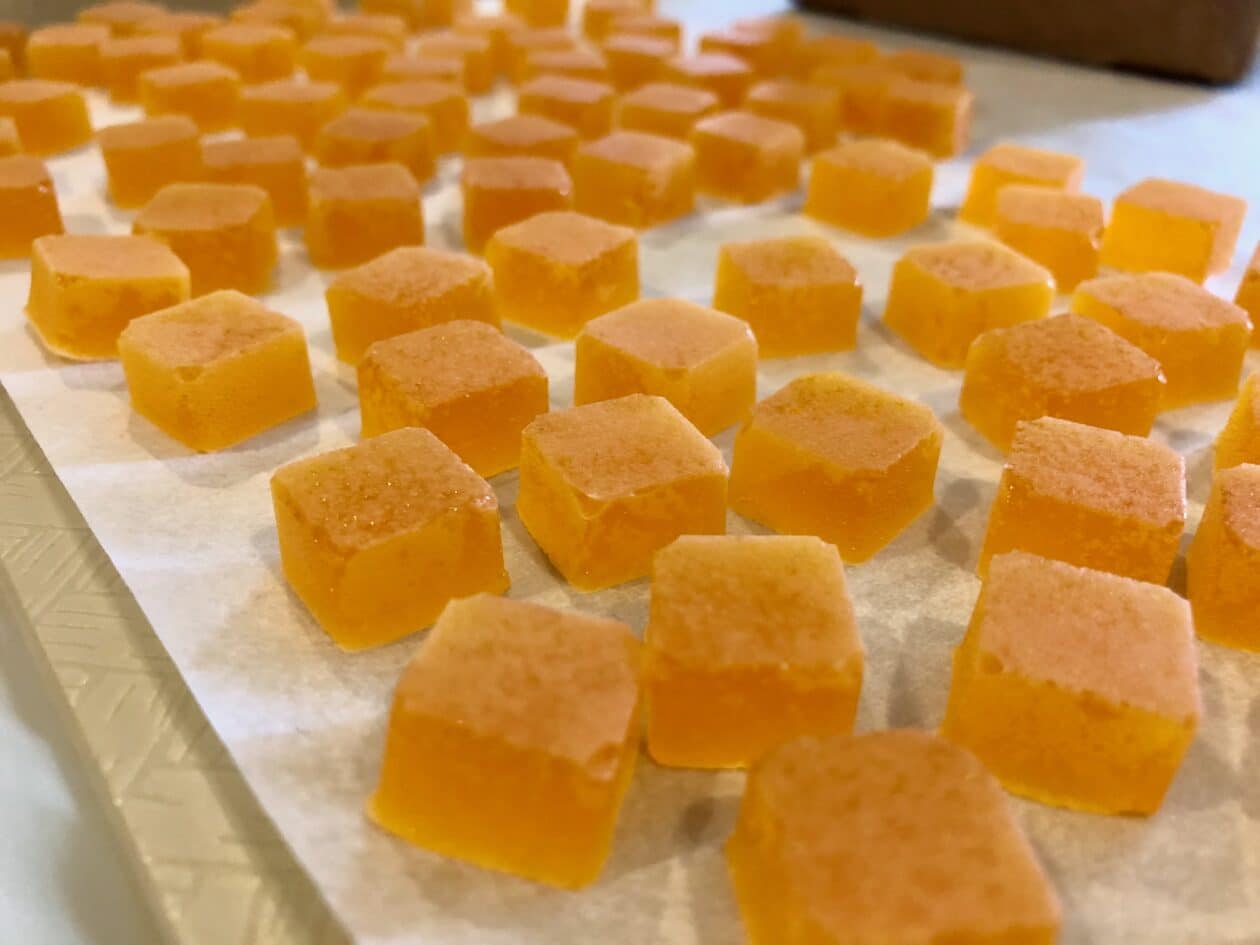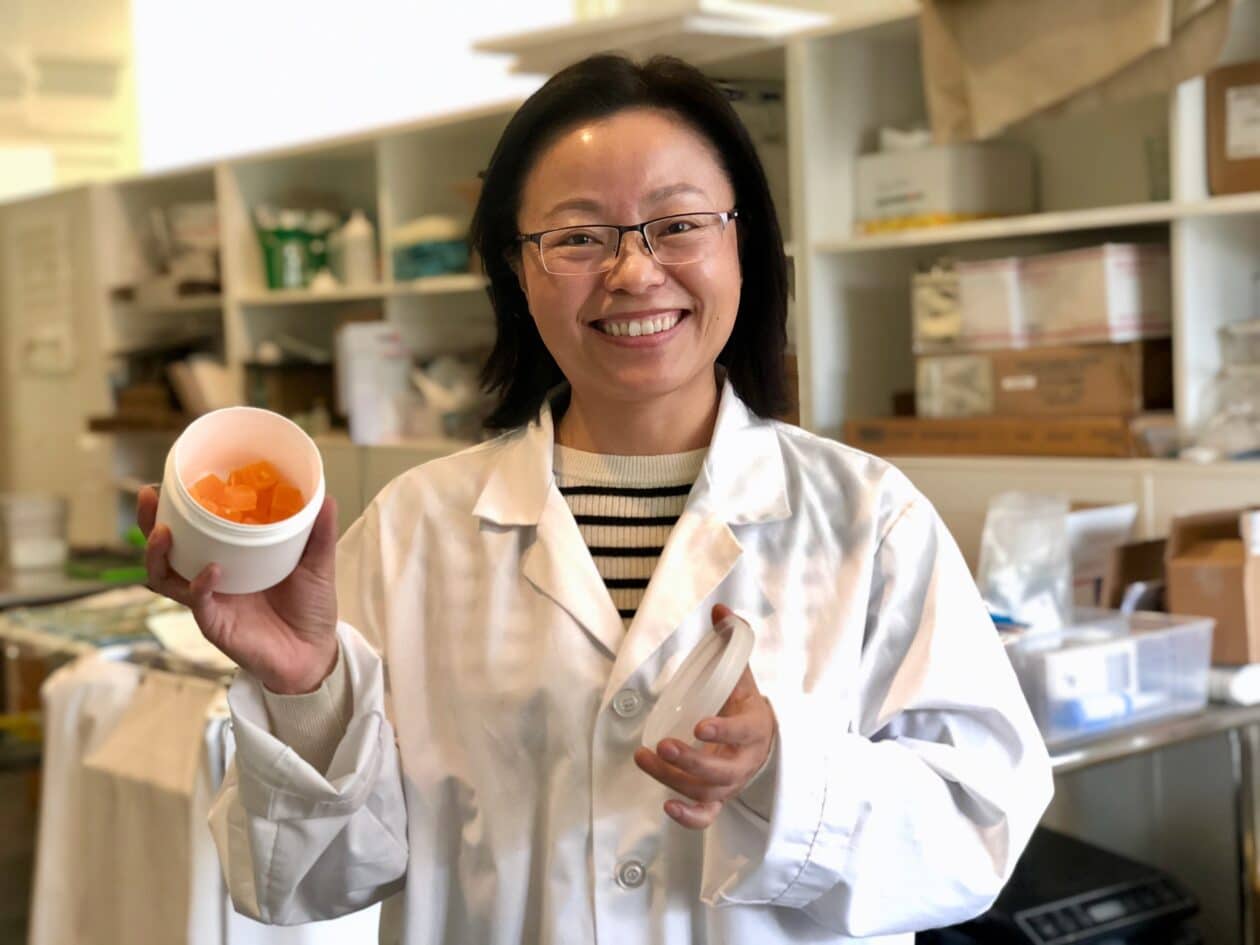Company News
Seattle Gummy wants to revolutionize medicine for kids with world’s first gummy drugs
Connie Wan is no different than any other parent who has struggled to get a little kid to take medication during a bout of sickness. She fumbled with syringes and syrups and worried whether the proper measurements had been made and dosages consumed.
Shopping in Costco back around 2007, Wan was attracted to the popular gummy vitamin brand L’il Critters. Wheels started turning in the mind of the PhD chemist and patent attorney as she pictured her young son chewing, rather than swallowing, a gummy form of allergy medicine or a pain or cough reliever.
“Gummy has been a candy formulation for centuries,” Wan said. “The first time I saw it in Costco, I thought, ‘Gosh, that’s a good formulation for drugs.’”
Wan’s first idea was to get a group of investors to buy the Vancouver, Wash.-based company that made Lil’ Critters at the time, with the goal of using their technology to make a line of pediatric gummy medications. It didn’t happen. In 2012, Church & Dwight Co., the consumer goods giant behind brands such as Arm & Hammer, Trojan and Oxi Clean, scooped up Avid Health for $650 million.
A few years later, now working on the investment side at Bellevue, Wash.-based Intellectual Ventures, Wan met another group of investors interested in buying a gummy company. But with no small targets on the horizon, she was stymied again. It was then that she set out on a quest to build a revolutionary drug company on her own.
Seattle Gummy Company was born in 2016, and on our recent visit to the startup’s headquarters in Seattle’s Pioneer Square neighborhood, Wan discussed the long road she’s traveled to get from inspiration to being on the verge of clinical trials.
“The technology we’re using is an 18th century technology for kids,” Wan said of traditional pills and tablets. “And yet we have driverless cars. It boggles my mind. It’s fascinating how society functions.”
The mission is to create a better method of delivering active ingredients into the body. Because they are chewed and dissolve slowly, gummies have prolonged contact with the mucous membrane in the mouth, so absorption is quicker and the drug acts faster.

Wan initially thought it would be easy to just combine active pharmaceutical ingredients with gummy material, but the API’s reactive chemicals interfered with the polymer matrix formation and made it difficult to properly form the gummy.
Because the gummy is a water-soluble solution, getting the drug to dissolve inside the gummy in a homogeneous way was another early problem. If the drug was not dissolved, you could taste it.
Wan went back to investors who were expecting a gummy drug within the first six months. She told them what she learned during her time at Intellectual Ventures — a very IP-licensing and technology-driven company.
“A lot of times when you want to show people what you can do it’s not about giving them a piece of paper with a patent,’” Wan said. “This company has tons of patents, we have over 40 patent filings. It doesn’t really mean anything to a lot of people. You have to show them that you can do it. Something they can have in their hand, put in their mouth.”
This mindset led to Seattle Gummy Company’s very real business as it stands today, with a range of plant-based, gluten-free, products including high-energy caffeine-infused gummies, fruit vitamins, pre-workout power boosters and post-workout recovery gummies, and beauty blends that promise better skin, hair and nails.
The startup has raised more than $10 million from investors and currently employs around 20 people. A production facility is located in Auburn, Wash., and products sell on the Seattle Gummy Company website, Amazon and in hundreds of stores.
“If I can put 100 mg of caffeine into a small gummy, and if you enjoy it without even thinking about it, and it works within 3 to 5 minutes, I become a lot more credible to other potential investors,” Wan said. “I can’t give you a drug without having the FDA approve it. But I can show you, with a very similar type of bitterness and molecule, that I can do this — and just imagine what I can do with all the other drugs.”
Caffeine, an unregulated API, was used because it was a perfect way to showcase the technology. And, like nearly anything semi-coffee related coming out of Seattle, it took off. The company’s Mocca Shots are the most concentrated caffeine product on the market — nobody else can load as much caffeine in a similar volume, Wan said.
The company also makes 10 mg CBD-infused gummies called Mello Shots that are selling well. But Wan has no interest in becoming a CBD company. The drugs she’s focused on are of the pediatric variety, and the first is cetirizine, the active ingredient in Zyrtec, the allergy symptom medication.
Seattle Gummy is working with the FDA’s OTC division for non-prescription drugs, and they have a 505(b)(2) pathway which allows manufacturers to get FDA approval without some of the steps required of brand new drugs. The gummies are just a new method of administering an existing drug, so the trial is only 28 days. The startup is dealing with requirements related to packaging (nothing see through) and typography and images in labeling (no cartoonish characters). After a formal application, if all goes well, approval could come by the end of 2020.
Wan is already planning Benadryl, Tylenol, Nyquil and Mucinex gummies. She said big pharmaceutical companies, churning out pills and tablets, haven’t bothered with investing in the gummy science and technology themselves, because the return on investment isn’t big enough for them. But that’s not to say they wouldn’t come for Wan and company once she has a proven drug or two under her belt.
“We are going to be the first gummy drug in the world. That’s quite a process,” she said, adding that she wants her legacy to not be about money or anything else. She ultimately wants syrupy medications to be as unfamiliar to kids as dial-up phones.
Jane Cui, who spent 10 years at Microsoft and is now president of Asia markets for the German camera maker Leica, sits on the board at Seattle Gummy. She was moved by Wan’s story of dealing with her son and medications.
“I thought she was really taking on a personal mission, and moving medicine into a more modern world,” said Cui, who helped Wan raise her Series A funding and is passionate about supporting female founders. “A small startup company in Seattle doing gummies? It’s not very sexy. It’s not AI! Machine learning!” she said laughing.
But Cui said that when she was near the end of her time at Microsoft, she felt particularly interested in technology that solves our daily problems, and she thinks Seattle Gummy Company is out to improve the quality of our lives.
“From an investment perspective,” Cui said, “I believe this is the next billion-dollar startup.”
Article courtesy of GeekWire BY KURT SCHLOSSER

